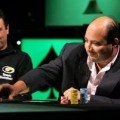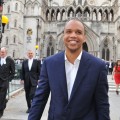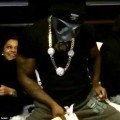
Paul Phua Lawyers Want Case Dismissed

Paul Phua’s lawyers want the case against him dismissed. (Image: SMP/South China Morning Post)
Paul Phua has been winning some notable legal victories as of late, making the case against him for allegedly running an illegal sports betting operation out of a Caesars Palace villa last summer look shakier than ever.
And with the amount of usable evidence against him shrinking and his legal team feeling more confident, his lawyers are now asking that the case be dropped entirely.
That request comes on the heels of a ruling by US District Judge Andrew Gordon, who found last week that the FBI’s tactics in collecting evidence against Phua were unconstitutional.
Since that ruling, defense lawyers David Chesnoff and Daniel Bogdon have made several filings, including a request that the case be thrown out entirely.
Defense Requests Travel Ban Lifted, Evidence Declared
But even if the judge doesn’t wish to unilaterally dismiss the case, the defense team has made other, lesser requests that he might be willing to grant.
First, they have asked that the GPS monitoring of Phua be ended, and that he be allowed to travel abroad while awaiting trial.
“He is not a flight risk and has had the courage to remain and fight for his liberty,” Phua’s attorneys wrote in an email on Tuesday.Â
In another document, defense lawyers have asked the government to specify exactly what evidence they plan to use at trial. Because of Judge Gordon’s ruling on the initial FBI ruse, evidence from that search and the subsequent raid on the villa cannot be used in the case.
Prosecutors have previously said that not having that evidence would make it much harder to prosecute Phua, and it is unclear how they plan to make their case at this point.
“We are asking the government to provide us with facts so we can fairly defend ourselves,” Chesnoff and Goldstein said.
Judge Found FBI Tactics Unconstitutional
The requests come a little more than a week after Judge Gordon ruled that the FBI violated Phua’s rights when they gained access to his room in order to investigate the alleged World Cup sports betting ring being run from there.
The FBI worked with a Caesars contractor to cut off Internet access to the villa, after which Phua and his associates requested technical support. FBI agents then posed as repairmen in order to collect evidence that was in turn used to obtain a search warrant for a later raid.
Phua’s lawyers argued that this tactic was illegal, and Judge Gordon agreed.
“Permitting the government to create the need for the occupant to invite a third party into his or her home would effectively allow the government to conduct warrantless searches of the vast majority of residences and hotel rooms in America,” Gordon said during the hearing in which he announced his ruling.
“The government need only disrupt the phone, cable, Internet, or some other ‘non-essential’ service, and reasonable people will opt to invite a third party onto their property to repair it, unwittingly allowing government agents into the most private space to view and record whatever and whomever they see.”
So far, prosecutors have made few comments about the filings or their plans for the future of the case.
“This is an active criminal case and is still being litigated,” said US Attorney Daniel Bogden. “Therefore, we will not be making any comments on the case other than in our court filings.”















0 Comments